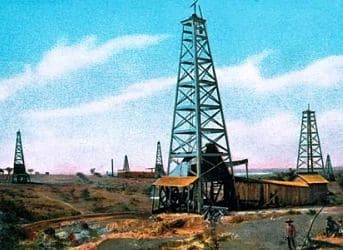The CEO of French supermajor Total met with leaders in Myanmar during the weekend, including Nobel Peace prize laureate Aung San Suu Kyi. Leading a delegation of top energy executives, Christophe de Margerie said his country was delighted in the political reforms under way in Myanmar. Since general elections in 2010, the country seems ripe for international investment. Against the backdrop, however, comes a series of alarms from human rights officials expressing concern about ethnic violence gripping the west of the country. With political development comes economic development. But the visit, and others like it, raises questions about the responsibilities inherent with that development.
Suu Kyi has moved from political prisoner to Member of Parliament in less than two years, showcasing the speed at which Myanmar is developing politically. Since her release and subsequent elections, the European Union and United States have relaxed sanctions against the country, opening the door somewhat to international investors. Total said it was "delighted" by the potential in Myanmar. More dialogue with leading stakeholders in the country, the supermajor said, could give executives the opportunity to examine potential development.
Total, in its profile of Myanmar, notes it is one of the oldest oil-producing countries in the world, exporting its first oil in 1853. Nine international oil companies were working in 16 onshore blocks as of 2007. Output, the French company said, is small -- the country produces around 180,000 barrels of oil equivalent per day and 90 percent of that is natural gas.
Against the reluctant foray, however, comes mounting concerns from the international community. Deadly clashes erupted last week between Muslim and Buddhist communities in the west of the country, bringing longstanding concerns in the country to the surface. Four days after Total's visit, the U.N. Office of the High Commissioner for Human Rights was saying simmering conflict in western Myanmar "represents a serious threat to the country’s future."
Countries like China seemingly make a strong distinction between economic and political affairs. But Total isn't China. Neither are the energy companies working off the coast of Democratic Republic of Congo or Côte d'Ivoire, two countries coping with lingering violence following years of war. Total is a business whose objective is to extract natural resources from sovereign territory. But, as is the case with Libya, there is a link between energy and politics. That's not to say that Total is in the business of political exploitation nor is it a call for social responsibility. It only reaffirms the underlying concerns about economic ties in underdeveloped and developing countries like Myanmar.
"Wealth from country's ample natural resources is concentrated in the hands of an elite group of military leaders and business associates," reports the CIA. "In 2010-11, the transfer of state assets - especially real estate - to military families under the guise of a privatization policy further widened the gap between the economic elite and the public."
By. Dan Graeber of Oilprice.com


















